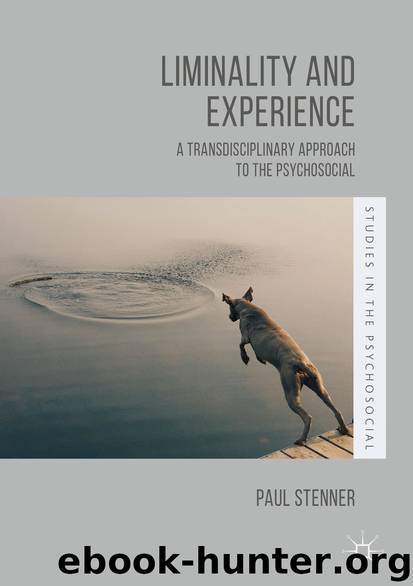Liminality and Experience by Paul Stenner

Author:Paul Stenner
Language: eng
Format: epub
Publisher: Palgrave Macmillan UK, London
Conclusion
Building upon Foucault’s analysis of Magritte’s painting, and with the help of the process thought of William James and A. N. Whitehead , we have described multiple ways in which ‘this’ is not a pipe. These ways shed light on four distinguishable modes of experience, which together gives us an ever more complex spectrum that allow us to avoid a simplistic bifurcation between subjective mind and objective matter. The discursive pipe is not the propositional pipe or any of the others. The propositional pipe is not the pipe image. And the pipe image lacks the causal powers of the energetic pipe. Each mode of experience is part of a real unfolding process, and each re-enters, appropriates and builds upon experiences from the prior modes. The pipe constructed in language, for example, is part of the multiple streams of discursive communication that—in the ongoing dialectic of speaking and listening—compose our social systems. The pipe of power is no less part of a flow of real activity itself divisible into a moment of being affected (experience) and a moment of affecting other things ( expression). Each occasion of human experience can thus be seen to be composed of a gathered multitude of temporalities expressible as at least four dimensions, intersecting in any given moment.
In the course of normal, daily experience, of course, this complex diversity is more or less smoothly unified. Metaphorically speaking, it takes the internally coherent form of a calligram where word reinforces concept reinforces percept reinforces causal efficacy . In painting Ceci n’est pas une pipe, Magritte draws our attention to those moments when that calligramic unity is cracked open, and the buzzing multiplicity that is usually concealed, is revealed to us. Magritte’s painting—gimmicky though it may sometimes appear—captures this moment of disintegration, holding it still in a painterly apprehension that allows us to feel and reflect upon our uncanny nature. These are the ‘uh oh!’ moments that impel us to turn around upon our experience, and to ask afresh for its meaning. Thanks to these moments we can no longer remain what we have only just understood ourselves to be. We are once again on our way.
Download
This site does not store any files on its server. We only index and link to content provided by other sites. Please contact the content providers to delete copyright contents if any and email us, we'll remove relevant links or contents immediately.
Should I Stay or Should I Go? by Ramani Durvasula(7642)
Why We Sleep: Unlocking the Power of Sleep and Dreams by Matthew Walker(6689)
Fear by Osho(4724)
Flow by Mihaly Csikszentmihalyi(4679)
Rising Strong by Brene Brown(4441)
Why We Sleep by Matthew Walker(4426)
The Hacking of the American Mind by Robert H. Lustig(4361)
How to Change Your Mind by Michael Pollan(4343)
Too Much and Not the Mood by Durga Chew-Bose(4324)
Lost Connections by Johann Hari(4166)
He's Just Not That Into You by Greg Behrendt & Liz Tuccillo(3874)
Evolve Your Brain by Joe Dispenza(3657)
The Courage to Be Disliked by Ichiro Kishimi & Fumitake Koga(3475)
Crazy Is My Superpower by A.J. Mendez Brooks(3386)
In Cold Blood by Truman Capote(3369)
Resisting Happiness by Matthew Kelly(3332)
What If This Were Enough? by Heather Havrilesky(3302)
The Book of Human Emotions by Tiffany Watt Smith(3287)
Descartes' Error by Antonio Damasio(3264)
